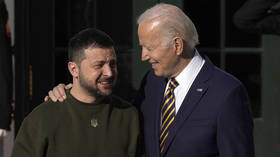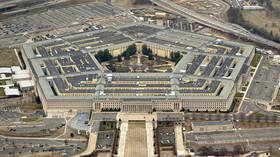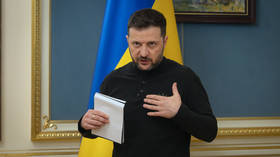Medvedev expands FSB powers
Russia’s President Dmitry Medvedev has signed into law a bill expanding the powers of the Federal Security Service (FSB). The new legislation will come into force after it is officially published.
Earlier this month, the bill, which was harshly criticized by the public and human rights groups, was passed by the Russian parliament’s lower and upper houses – the State Duma and the Federation Council.
According to Medvedev, the amendments to the legislation were performed under his direct order.
The new FSB bill allows the heads of the agency’s bodies or their deputies to issue warnings to citizens on actions that could lead to committing crimes, the preliminary investigation of which refers legally to the competence of the FSB.
If “sufficient and confirmed” information is obtained, FSB bodies will submit letters to a corresponding state agency or to the management of a company requiring a mandatory clearance of the reasons and conditions allowing the fulfillment of the threats to the security of the state.
Disregard for an FSB officer’s legitimate order by officials carries a fine or an administrative arrest of up to 15 days. But the provision does not concern private individuals. The Duma made corresponding amendments in the Law on the Federal Security Service and in the Code of Administrative Offences.
Many human rights activists and politicians have criticized the bill. “There is no indication of a fight against or prevention of terrorism in it, and it is of no benefit to anyone,” Interfax quoted Yabloko party leader Sergey Mitrokhin as saying. The liberal party is not represented in the parliament.
“No social groups will benefit, except the governing oligarchic elite, which is clinging to power and to the wealth which power brings,” Mitrokhin said.
Leonid Gozman, the co-chairman of the Right Cause party believes the bill will give the FSB the official go-ahead to put pressure on citizens. “We take make a big step way from democracy toward a police state,” he noted.
The president needs to maintain “a balance of forces at the top,” Gozman said. However, he told Interfax the legislation “to some extent, contradicts what [Medvedev] has been saying and doing over the past few months.”
The Memorial human rights group asked the president on July 15 to veto the bill. The group described the legislation as “partly pointless and partly dangerous to public freedom.”
Sergey Borisov, RT












